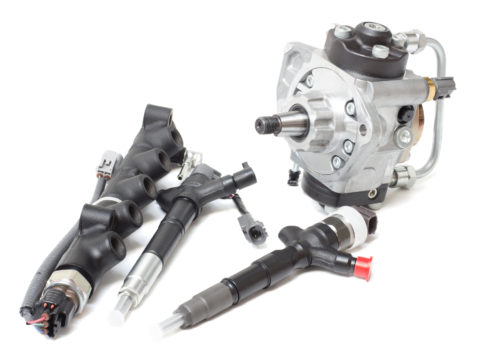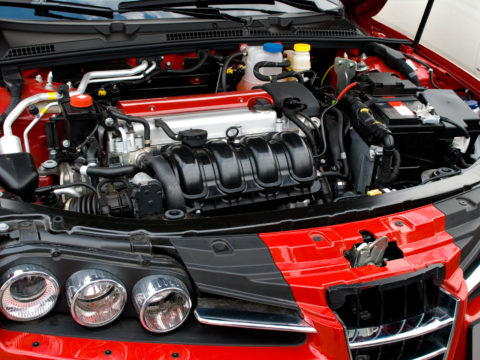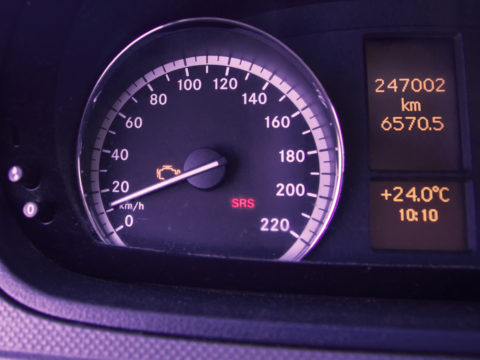As technology and modernization progress today, we are always looking for parts that make our cars more efficient and reliable. Manufacturers provide practical and productive aftermarket solutions in response to this need for comfort.
So, should you invest in a cold air intake kit, and will it improve your gas mileage or fuel economy?
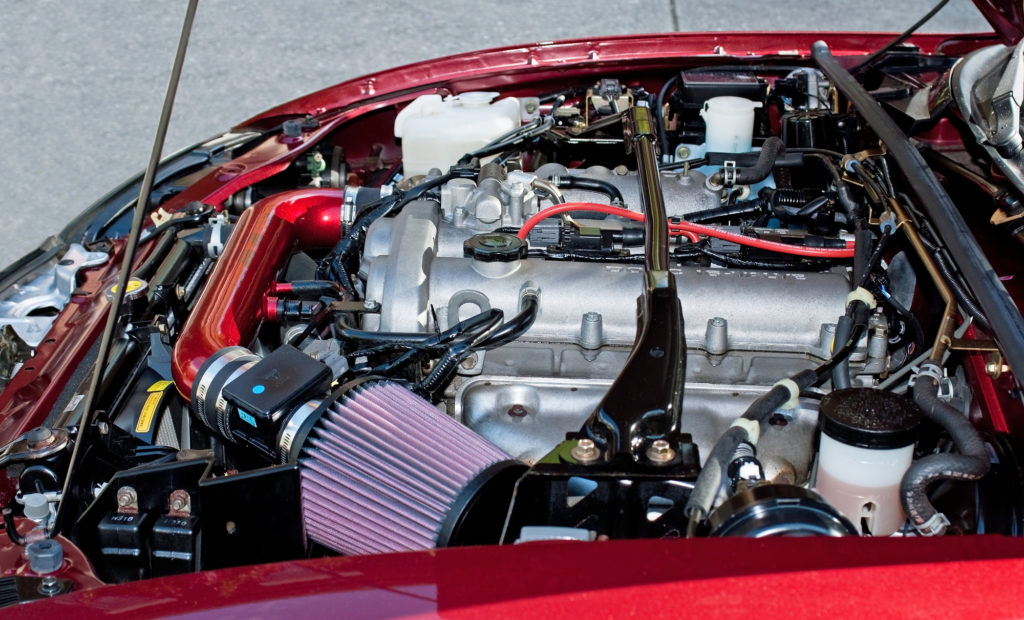
Contents
Does Cold Air Intake Give Better Gas Mileage?
Cold air intakes help reduce your vehicle’s fuel consumption. This is because better combustion allows more energy to be produced while consuming less fuel. The oxygen in the air is responsible for the fuel’s ignition, and the combustion process will be less successful if the air has a lower proportion of oxygen due to dampness.
A high-flow air filter optimizes airflow to the engine, enhancing performance and fuel efficiency.
Although gas will be used and a car will drive, the process will be incomplete. As a result, the computer’s ECU will decide to utilize more fuel to maintain performance.
What Does A Cold Air Intake Do?
- Cold air intakes provide cooler air into your engine and combustion chamber. They increase engine power and efficiency in this way.
- The air/fuel combination is ignited and transferred to your car’s engine cylinders to drive the explosive action, which is then converted to physical energy and finally turns your car’s wheels thanks to the gearbox.
- This is because cooler air has a greater oxygen density, and a given amount of cold air contains more oxygen than a similar volume of warm or hot air. As a result, the resulting combustion reaction is more efficient, resulting in increased engine power and mileage.
- Cold air intakes work by replacing the standard airbox with a metal or plastic tube that connects to a conical air filter. Heat shields are incorporated to protect the air filter from the engine’s surrounding components, which may get rather hot after even a brief period of operation.
- The cold air intake keeps outside air chilly compared to the engine environment, allowing for greater combustion reactions.
How Much MPG Does A Cold Air Intake Add?
Cold air intakes may increase fuel economy by 3-5 MPG, but only if they produce cooler air than your vehicle’s original intake. This may help you get better MPG; however, it depends on the component and your car.
Should you replace an older air intake, you can lose performance and fuel efficiency if the replacement intake is not as strong as the previous one. You could also be asking whether the boost in MPG from a new intake is significant or not.
You should anticipate a minimum of three and a maximum of five miles per gallon improvement if the intake is stronger than the factory air intake.
Will Cold Air Intakes Decrease MPG?
Cold air intake systems are meant to increase the performance and efficiency of your engine. The air intake system may sometimes let water into the engine, causing significant issues such as decreased MPG. However, having the mod correctly installed and updating it regularly might help avoid this problem.
While reducing your vehicle’s MPG is possible, this is uncommon and typically happens only when another issue is present.
Benefits Of A Cold Air Intake
Increased Horsepower
A cold air intake system’s most well-known benefit is that it may boost your vehicle’s horsepower.
Better Acceleration
The density of cool air is higher than that of warm air, indicating that there is more air available for burning that will enable you to achieve your target speed much faster.
Better Fuel Mileage
An engine improvement that enhances the air-to-fuel ratio is a cold air intake system. The less fuel your engine needs to burn, the more air it gets through it.
They Come With Better Filters
Aftermarket cold air intakes have significantly tougher filters, which are more durable than paper filters. These filters don’t need to be changed either, and instead, you remove them and properly clean them.
Fuller Sound
Your car’s sound will be louder and fuller with a cold air intake, and your engine sound increases as it receives more cool air.
Cold Air Intake Cons
More Expensive
Cold air intakes usually receive denser air than the stock air intake tubes. They are pretty expensive since they are longer and need more complicated routing.
Difficult Installation
This additional complexity also makes installation more complicated and time-consuming.
More Likely To Take In Debris
The cold air intake system’s greatest strength might also be its biggest drawback. More precisely, it’s related to the filter’s placement, containing the greatest dirt and moisture. Your car’s engine may hydro lock if it ingests a substantial volume of water, inflicting catastrophic damage.
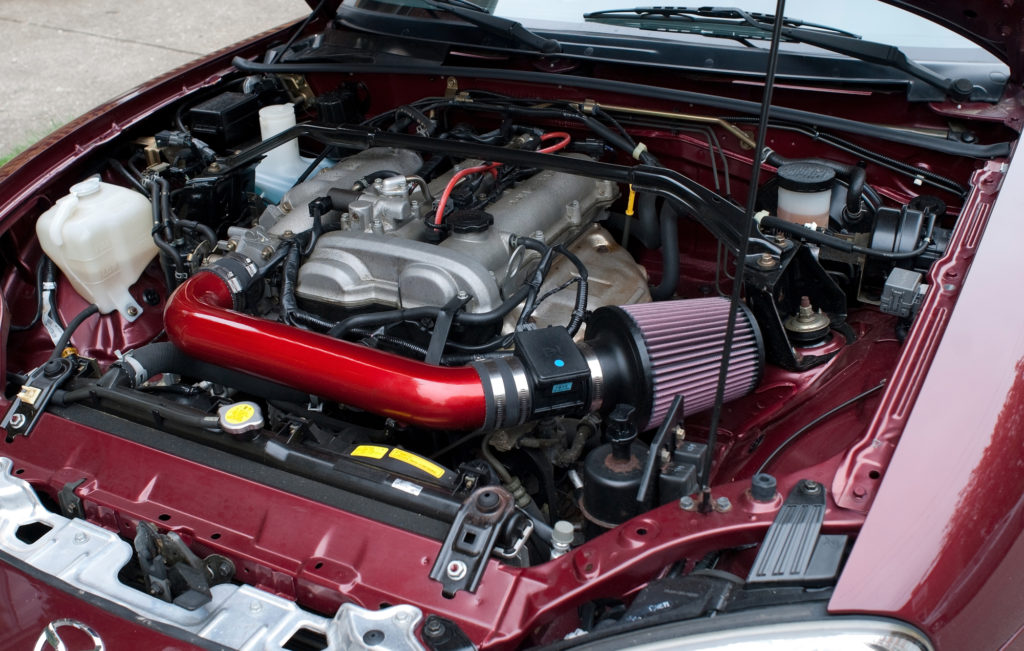
So, Should You Buy A Cold Air Intake System For Your Car?
A cold air intake system is an excellent automotive modification that will increase your engine’s cooling capacities. Delivering colder air enhances oxygen flow into your combustion chamber improves fuel economy.
Best Cold Air Intake System
These are some of the best cold air intake brands available right now on the market.
- Volant 151536 PowerCore
- Airaid 451-328 MXP
- Injen SP1902P
- Spec-D AFC-ACD98-KM
- S&B Filters 75-5068
- DC Sports CAI4105
- HPS Air Intake Kit 27-165SL
- K&N Performance 63-1561
- Spectre Performance 9900.
FAQs
Does a cold air intake void warranty?
No, it does not. To void warranty coverage of a repair due to the use of aftermarket systems, the manufacturer of a warranted vehicle must prove that the aftermarket air intake part is the cause of the necessary repair. The Consumer Products Warranty Act of 1975 protects these rights.
How much torque does a cold air intake add?
For more power, you need to get more cold air into your engine. With the larger and less restricting filter and intake tube, you may get up to 10-15 horsepower.
Why is my cold air intake hot?
The air within the intake rarely becomes heated, and the issue arises when you start sucking hot engine air.
Does cold air intake increase HP and speed?
An adequately fitted cold air intake may add roughly ten horsepower to your vehicle’s engine.


